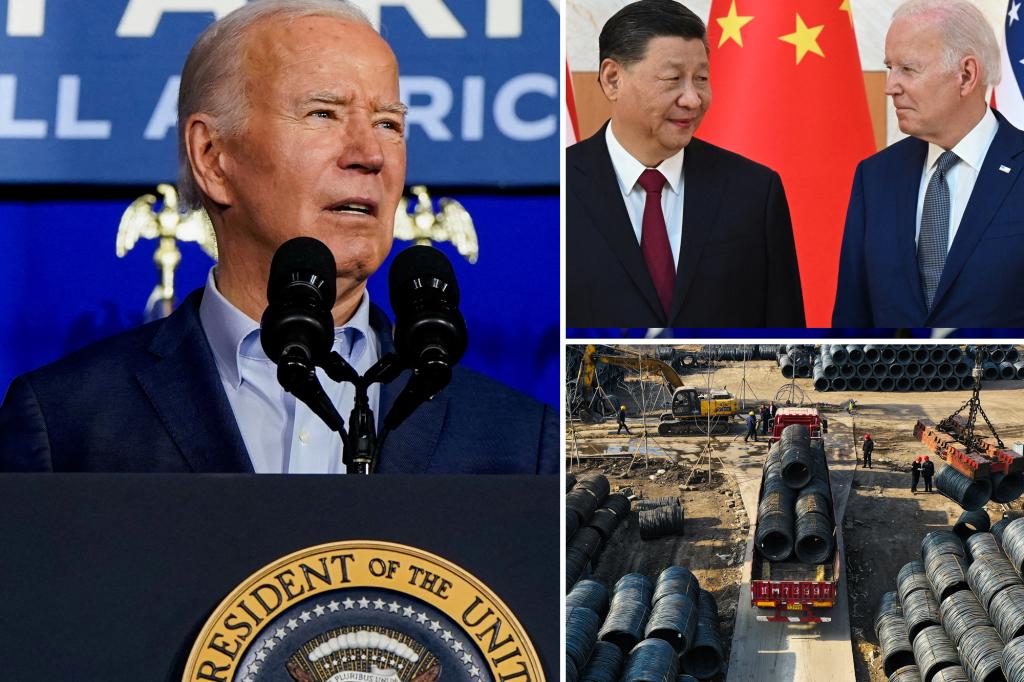President Biden is set to announce a new 15% tariff on Chinese steel and aluminum, resuming the trade war with Beijing that was initiated by former President Donald Trump. The Biden administration officials expressed concerns that China was planning to flood the US market with cheap steel and aluminum, which could harm American manufacturers. They believe that China’s overproduction and subsidies could lead to artificially low prices that undercut American steel manufacturers.
Biden has decided to keep most of Trump’s tariffs in place, including the 25% tariff on steel and 10% tariff on aluminum from most countries that were imposed in 2018. These tariffs were put into effect under Section 232 of the Trade Expansion Act of 1962. Trump had also imposed tariffs on Chinese goods under Section 301, which are still in effect under Biden. These tariffs cover roughly $362 billion of annual imports from China.
Trump’s trade war with China was part of an effort to negotiate a new trade pact to benefit the US before the COVID-19 pandemic stalled progress. The former president and the Chinese government had agreed to a “Phase One” bundle of reforms, but the pandemic disrupted further negotiations. Biden’s decision to impose more sanctions on Chinese metals comes as he campaigns in steel-producing Pennsylvania, a state that was narrowly won by Trump in 2016.
Republicans have criticized Biden for being too lenient on China, particularly in terms of stopping exports of synthetic opioids like fentanyl. The opioid crisis has claimed over 200,000 American lives since Biden took office, with many of the drugs involved either being shipped from China or its chemical components. Biden’s decision to impose a 15% tariff on Chinese steel and aluminum under Section 301 will follow a formal review of the existing tariffs.
The White House has stated that the current average tariff on Chinese steel and aluminum is 7.5% under Section 301. Biden is calling on the US Trade Representative Katherine Tai to consider tripling the existing tariff rate on Chinese steel and aluminum. This move is seen as an attempt to protect American manufacturers from being undercut by what the administration sees as unfair trade practices by China. The decision to implement these new tariffs comes as part of the ongoing effort to address trade imbalances and prioritize American industry.















